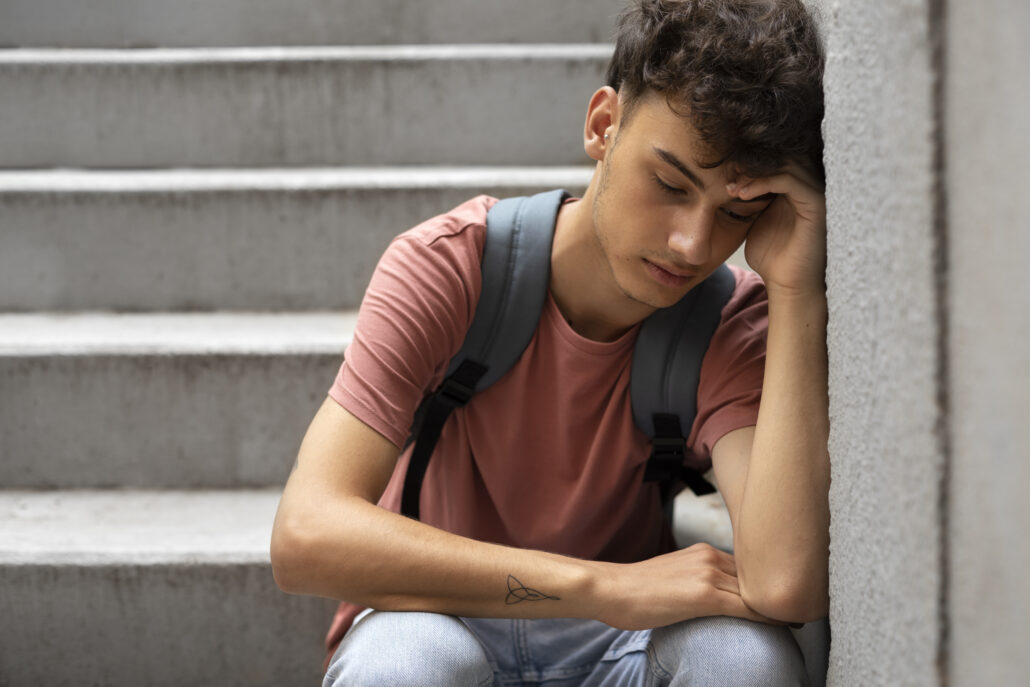Adolescent Trauma Research Study
Researchers at UT Health San Antonio are conducting a study on trauma therapy for teens who have experienced a traumatic event and are showing symptoms of posttraumatic stress.

Fast Facts

Experienced a Trauma & Have Symptoms of Stress

•Ages 12-17 Years Old
•Not Taking Psychiatric Medications

Compensation Provided

Conducted in San Antonio, TX
Study Background
Join a study on trauma therapy and find relief from posttraumatic stress symptoms.
For teens ages 10-17 who have experienced trauma and are struggling with symptoms such as upsetting memories, difficulty sleeping, and irritability, this study offers a potential path toward healing. Researchers at UT Health San Antonio are exploring how trauma therapy, combined with brain imaging, can help improve symptoms and brain function over time. The study involves weekly therapy sessions, MRI scans, and assessments that will be done over the course of several months, with the option for virtual participation. The goal is to help teens manage their symptoms and improve their mental health.
This study offers parents an opportunity to support their child in receiving specialized care while also contributing to a better understanding of trauma and healing. The therapy and assessments are carefully designed with your child’s well-being in mind, and the research findings may lead to advancements in trauma care for young people.

Study Background
Join a study on trauma therapy and find relief from posttraumatic stress symptoms.

For teens ages 10-17 who have experienced trauma and are struggling with symptoms such as upsetting memories, difficulty sleeping, and irritability, this study offers a potential path toward healing. Researchers at UT Health San Antonio are exploring how trauma therapy, combined with brain imaging, can help improve symptoms and brain function over time. The study involves weekly therapy sessions, MRI scans, and assessments that will be done over the course of several months, with the option for virtual participation. The goal is to help teens manage their symptoms and improve their mental health.
This study offers parents an opportunity to support their child in receiving specialized care while also contributing to a better understanding of trauma and healing. The therapy and assessments are carefully designed with your child’s well-being in mind, and the research findings may lead to advancements in trauma care for young people.

Additional Information
This study is being conducted to better understand how trauma therapy affects the brain and to determine whether it can help teens recover from symptoms of posttraumatic stress. By combining therapy with MRI brain scans, the researchers aim to track changes in brain function and symptom improvement, ultimately providing better treatment options for youth experiencing trauma.
Inclusion Criteria:
- Ages 12-17
- Experienced a trauma & have symptoms of stress
- Willing and able to attend no-cost, weekly therapy sessions
- Able to undergo MRI scans (no metal in the body, no claustrophobia)
- Live in the San Antonio, TX area
Exclusion Criteria:
- Diagnosed with cancer, epilepsy, or neurological disorder
- Taking any psychiatric medications
Initial Discussion and Consent
Participants will have a meeting to discuss the study, and you’ll both sign consent forms.
The participant will complete a brief questionnaire about their symptoms and history (this can be done virtually).
This visit takes about 1 hour.
Web-based Questionnaires
Participants will complete web-based questionnaires from home.
These are designed to gather more information about their symptoms.
The questionnaires take about 1 hour to complete.
Virtual Interview
Participants will participate in a virtual interview to further discuss their symptoms and background.
This interview will last 1 to 2 hours.
MRI Scans
Participants will undergo 4 MRI scans over the course of the study.
Each MRI scan is scheduled as a 2-hour visit, but the actual scan lasts about 45 minutes.
These MRI scans will be spaced 6 weeks apart and will help researchers track changes in brain function over time.
Weekly Therapy Sessions
Participants will attend weekly therapy sessions designed to help them manage their symptoms and heal from trauma.
These therapy sessions will last 1 hour each and can be done virtually.
Follow-up Interview
After the therapy sessions, your child will participate in a final virtual interview.
This interview will take about 30 minutes and will review their progress and experiences throughout the study.
Participants will receive valuable therapy, undergo brain scans to understand trauma’s effects, and contribute to important research aimed at improving trauma care for other teens.
Qualified participants will receive compensation for their time and participation. Participants will receive $75 for the baseline assessment and MRI, and $100 for the final assessment and MRI. There is also a $25 payment for a follow-up call three months after the study ends.
There is no cost to participate in our research study.
